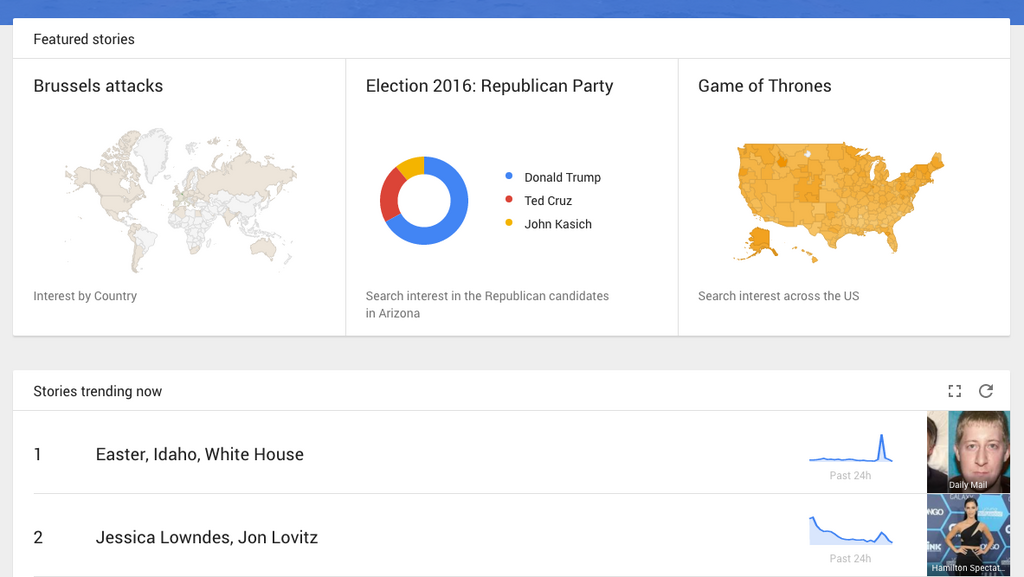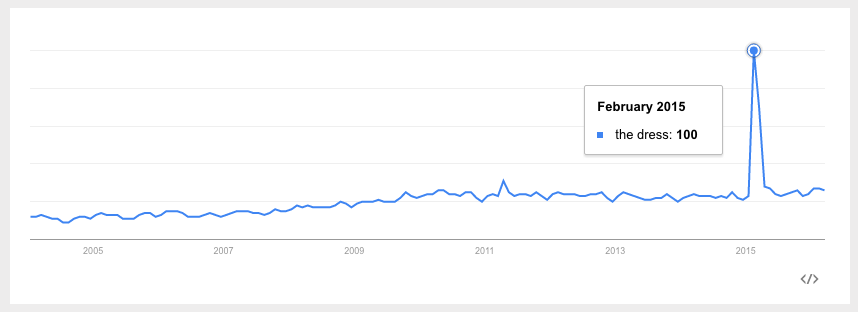10 Social Listening Tools and Who They’re Best for
By BrandwatchJul 14
Join us and boost your social media potential with our data-led event
Published April 1st 2016
In recent years there has been a growing hunger for predictive analytics across the business.
It’s no longer enough for analytics to tell us what has already happened. Modern marketers need analytics to tell them what is going to happen.
This is particularly true in the world of SEO, where knowing what people are going to search for before they start searching means staying not just one step, but several miles, ahead of the competition.
Google has spent many years supercharging its algorithms to offer better predictive search.
It’s very much the norm for Google to offer these services now. You’d be hard pushed to remember a time when you weren’t served up autocompleted queries and suggested content as you typed away in Google’s search field.

Predictive search not only helps Google deliver more relevant search results to users, it also gives us an insightful (and at times frightening) look into what the world is thinking about.
In recent years predictive search has become more focused on context and intent, thanks in part to the rise of mobile search powered by Google Now.
Instead of simply presenting predictions based on aggregated search data, Google has been developing technology that attempts to present answers to users before they even think to search for them.
“Google Now embodies the true possibilities of predictive search, serving as a personalized computer assistant that can predict your needs, wants, and deep desires.”
For marketers, knowing how to capitalize on predictive search today is a little unclear.
Google Trends is great for giving us a real-time snapshot of what people are already searching for today, but that doesn’t prepare us for what the world will search for tomorrow.

The lack of robust insights around predictive search means that marketers are still reliant on being reactive to emerging trends and topics.
We currently exist in a limbo where predictive search is playing an important part in how people find our products and content, but we don’t have the data available to take advantage of it.
Being the first to react can still have its benefits, but by the time something hits the front page of Google Trends it make be too late to capitalize on.

Fortunately there is another source of data that can provide us with insights into what the world might be searching for: social data.
If search engines are where we go to find answers, then social is often where we find the questions to ask.
In our recently released SEO and Content Strategy Guide, we explore how to use social listening to conduct keyword research to better inform content strategy.
One of the major stumbling blocks for many keyword research tools on the market, including Google’s own Keyword Planner tool, is that they are unable to offer reliable insights on emerging trends.
A marketer using a keyword tool back in February 2015 would have had no way of predicting the virality of ‘The Dress’.

Google Trends data for ‘The Dress’
In order to take advantage of fast emerging trends, marketers need to turn their attention towards the source of the story, and in most instances social media is where you should be looking.
It’s vital for publishers to be among the first to hear about ‘internet-breaking’ trends like ‘The Dress’.
There are a vast number of search algorithms specifically focused on making sure the freshest and most relevant content makes it’s way to top of the search rankings pile.
Similarly, there are algorithms that help original publishers stay on top as more publishers jump onto a trend.
Social listening tools, like Brandwatch, are crucial for brands who need to stay on top of emerging trends to support content strategies and marketing initiatives.
Where social listening at it’s most powerful for keyword research is when it’s honed in on a certain audience or niche.
In Brandwatch, the Signals feature -introducing predictive analysis into our social listening technology – is perfect for helping marketers surface emerging trends across the web. Signals analyzes social data in real-time looking for topics that are outside of the norm.
Stories breaking on social now, are often informing what people will search for later today and beyond.
As previously mentioned, being first to act is often vital, and Signals give brands the chance to react to trends before the competition can take notice.
Social listening not only reveals what people will search for, but also how they choose to search.
Anyone who has conducted keyword research will know that the biggest opportunities often lie in the long tail.
One of the issues with keyword tools is that they can often underplay the value of long tail search volumes. Social listening is perfect for finding the niches within topics that keyword tools might usually overlook.
Because social listening gathers data from organic conversations, it can also uncover the language variations that your audiences uses.
Shaping your content to match the lexicon of your audience will provide more relevant keyword targeting and will help you enhance your tone of voice.
When Google rolled out ‘not provided’ in 2011, there was a considerable amount of negative feedback from the SEO industry.
A large volume of keyword data that was once freely available to marketers was now hidden. Since then search engines have evolved greatly, and so too has the practices that are related to SEO.

It’s no longer enough to simply look back at historical keyword performance.
While we might not be at a place where predictive keyword insights are easily accessible and ready to act upon, we are in a fortunate position where more audience data is available to us than ever before.
That data is reaching us faster with increasingly rich information that reveals not just what people search for, but who they are, what they talk about, and what they are passionate about rest the time they are online.
Keyword research is just one of the areas where social listening can support SEO. Get the full picture by reading the report.
Offering up analysis and data on everything from the events of the day to the latest consumer trends. Subscribe to keep your finger on the world’s pulse.
Existing customer?Log in to access your existing Falcon products and data via the login menu on the top right of the page.New customer?You'll find the former Falcon products under 'Social Media Management' if you go to 'Our Suite' in the navigation.
Brandwatch acquired Paladin in March 2022. It's now called Influence, which is part of Brandwatch's Social Media Management solution.Want to access your Paladin account?Use the login menu at the top right corner.